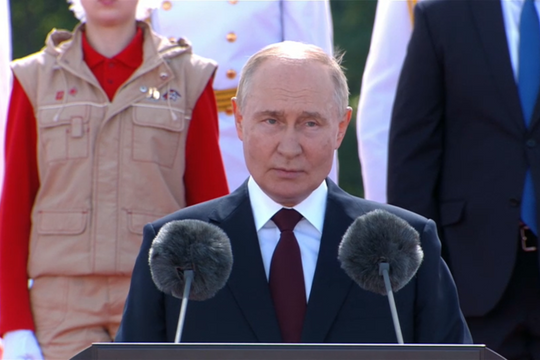Germany 'tightens belt' on military aid to Ukraine
Political scientists say Germany is no longer able to provide military aid to Ukraine.
.png)
Germany admits that it will no longer be able to increase military supplies to Ukraine. First, the economy is suffering from serious problems. Second, it does not have enough weapons to defend itself.
Germany's military-industrial complex lags far behind Russia's, which is operating at full capacity, Der Spiegel magazine reported, citing a study by the Kiel Institute for the World Economy (IfW). Experts say it will take almost 100 years to close the gap, according to Berlin's current policies. In particular, it will only be possible to return to the 2004 level, for tanks - by 2066, for combat aircraft - by 2038, for artillery - by 2121.
But in Russia, things are different. Studies show that production capacity there could produce the entire German Defense arsenal in six months. The authors claim that Moscow fires up to 10,000 missiles across Ukraine every day. In Germany, if such a quantity of weapons is used, the stockpile would be depleted in a maximum of 70 days. In addition, Russia has made significant progress in modern weapons systems. For example, the production of drones has increased more than sixfold.
“It would be completely irresponsible to maintain the same approach to the military-industrial complex in such a situation,” warned IfW researcher Guntram Wolff.
The head of the Kiel Institute for the World Economy, Moritz Schularik, is confident that Germany needs to spend at least 100 billion euros a year on defense. In July, the draft budget for 2025 was approved: the military was allocated 53 billion euros, although they requested 58 billion. By 2028, the funding will be increased to 80 billion euros.

Meanwhile, Ukraine is in need of more and more weapons. “We need solutions, we need timely logistics for the packages that have been announced. I appeal in particular to the United States, Great Britain, France,” Ukrainian President Volodymyr Zelensky said in an appeal to his allies.
It is worth noting that Zelensky did not mention Germany, although he has done so frequently in the past. Apparently, the Ukrainian leader realized that Berlin could not expect much more from the economic “locomotive” of the European Union’s economic engine. The Frankfurter Allgemeine Sonntagszeitung (FAZ) newspaper commented that in the conditions of austerity, Berlin would not be able to come up with anything new.
On August 19, the German government updated the list of weapons supplied to Ukraine, including IRIS-T air defense missile systems (SAM), 10 unmanned surface vehicles, 26 VECTOR reconnaissance drones and spare parts. Germany remains one of the main donors to the Ukrainian Armed Forces. However, FAZ points out, the situation will soon change.
Thus, Finance Minister Christian Lindner told Defense Minister Boris Pistorius and Foreign Minister Annalene Baerbock that new measures to support Kiev “can only be implemented if they are clearly outlined in the budget.” In 2023, Berlin will spend 5 billion euros on Kiev, in 2024 - 7.1. Three tranches have been allocated for 2025 and 2026, and 500 million for 2027 and 2028.
INION Director Alexey Kuznetsov sees it as natural that Germany will reduce its support for Ukraine. The German authorities will have to take this into account, even if they do not want to. Otherwise, a political crisis is inevitable.
Political scientist Alexander Dudchak says that Germany has less and less money to spend on the Ukrainian Armed Forces. But Berlin will not cut off supplies to Kiev. Instead, Germany may tighten its belt even more.






